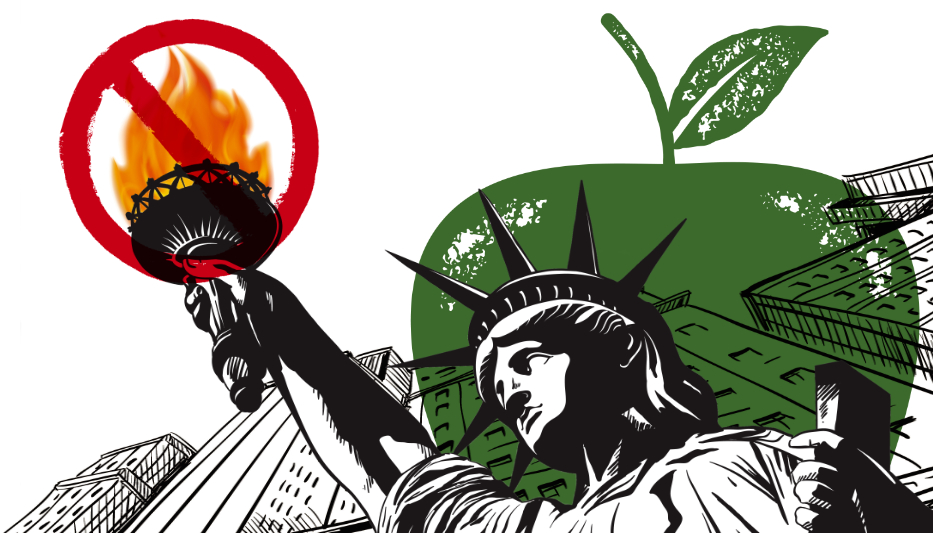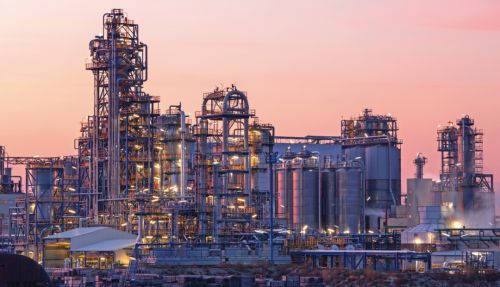All
New York City Bans Heating Oil & Natural Gas

No new buildings with combustible heating as of January 1, 2024
The biggest city in the U.S. has banned heating oil and natural gas in new buildings. This is not a drill. Nor is it a sensationalized opening sentence written that way to grab your attention. It’s the real deal.
On December 15, 2021, the New York City Council approved Int. 2317, legislation that “prohibits the combustion of substances with certain emissions profiles” in newly constructed buildings. Specifically, the legislation bans “the combustion of any substance that emits 25 kilograms of more of carbon dioxide per million British thermal units of energy, as determined by the United States Energy Information Administration [EIA].”
According to the EIA, heating oil emits 74.14 kilograms of CO2 per million Btu and natural gas emits 52.91 kilograms. Both would be banned from all new buildings under seven stories, beginning January 1, 2024. For new buildings that are seven stories or taller, the ban takes effect July 2, 2027.
According to the Oregon GREET model, B100 biodiesel produced at the Renewable Energy Group facility in Grays Harbor, Washington emits only 11.6 kilograms of CO2 per million Btu. Should the EIA follow the lead of the U.S. Environmental Protection Agency and begin adopting GREET emissions profiles, certain biodiesel and renewable diesel products may be allowed under the New York City ban.
Depending on the emissions accounting model adopted by New York City, a Bioheat® fuel blend containing 67% biodiesel may be allowed, according to sources close to the matter. Renewable natural gas and hydrogen would likely be prohibited. (Look for more on the topic of emissions modeling in future issues.)
Nevertheless, the law is clearly intended to electrify the city’s building sector. In addition to prohibiting the use of oil- and gas-fired heating systems in new buildings, the law explicitly calls for “a study regarding the use of heat pump technology in relation to the anticipated use of such technology.”
Currently, the majority of new homes and commercial properties constructed in New York City are built with natural gas heating. The ban would therefore, at least theoretically, strike a bigger blow to the natural gas industry than to heating oil dealers, who primarily serve existing buildings and not new constructions.
However, it’s worth noting here that one of the city’s largest natural gas and electric utilities, Con Edison, lobbied City Council in support of the ban. In comments submitted November 17, 2021, the utility wrote, “We support changes to the building codes that reduce the use of fossil fuels in buildings” and claimed the city’s grid “is well poised to support the transition to heating electrification.”
The New York State Energy Coalition (NYSEC) also submitted testimony on November 17, but took the opposite position. “We are deeply concerned about the potential impact this legislation could have not only on the biofuel industry in New York City, but the City’s fuel diversity,” stated NYSEC CEO Rocco Lacertosa.
“If we have learned anything during recent summer heat waves, it is that the electrical grid in New York City has structural inefficiencies that cannot be ignored,” Lacertosa continued. “If Int. 2317 were to become law as written, it would result in a tremendous increase in the load that the grid would need to handle and could lead to severe outages. It is also worth pointing out that electrical heating systems require significantly more power than biofuel and add additional stress on the grid. A blackout during some of the city’s coldest winter months could present a disastrous situation.”
That appeal fell on deaf ears, as the City Council approved the measure by a vote of 40-7. Bill de Blasio signed it into law on December 22, 2021 in one of his final acts as New York City Mayor. That same day, he also announced an investment of $420 million in electric vehicles, charging infrastructure, and alternative fuels to transition the City’s municipal vehicles to an all-electric fleet. Notably, the announcement stated, “Renewable diesel will be used in the truck fleet until electric vehicle units are available.”
According to a report published last year by consulting firm Keybridge, 13 counties in the Northeast U.S. have proposed or enacted gas bans (see “Who’s Next to Ban Gas?” from the November/December 2021 issue, page 30). New York City comprises five of those counties: Bronx, Kings (Brooklyn), New York (Manhattan), Queens, and Richmond County (Staten Island). The eight others are New Haven County, Connecticut; Cumberland County, Maine; Middlesex, Norfolk and Suffolk County, Massachusetts; Hillsborough County, New Hampshire; Tomkins County, New York; and Chittenden County, Vermont.
Related Posts
 From Retailer to Representative: Chris Keyser’s Road to the Vermont State House
From Retailer to Representative: Chris Keyser’s Road to the Vermont State House
Posted on June 16, 2025
 Northeast Working Group for Industry Principles Gets to Work
Northeast Working Group for Industry Principles Gets to Work
Posted on May 8, 2025
 Trump Policies and Energy Markets
Trump Policies and Energy Markets
Posted on April 28, 2025
 NEFI Introduces the National Home Comfort PAC
NEFI Introduces the National Home Comfort PAC
Posted on April 28, 2025
Enter your email to receive important news and article updates.
